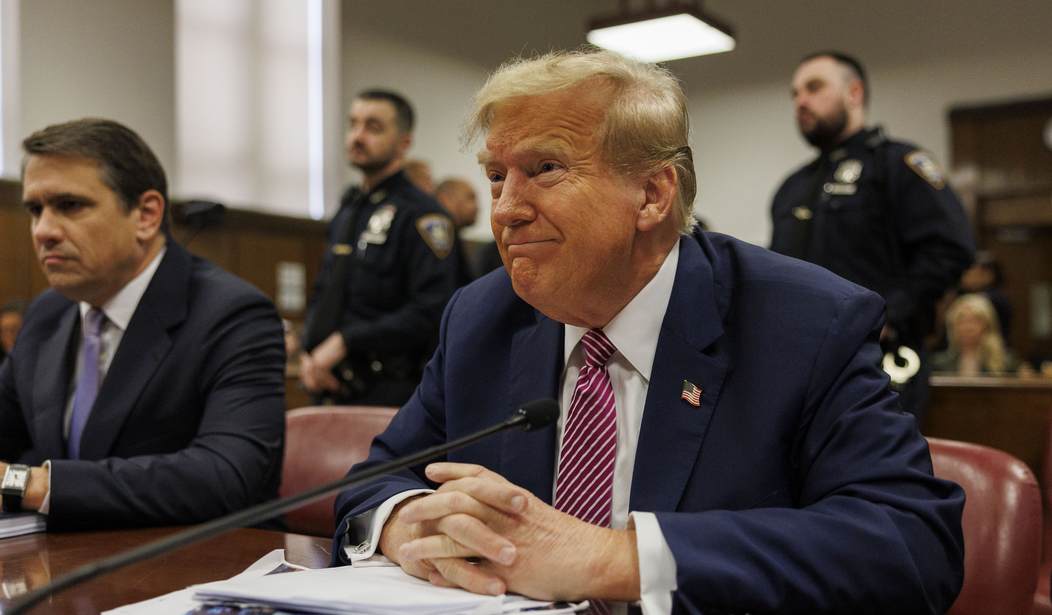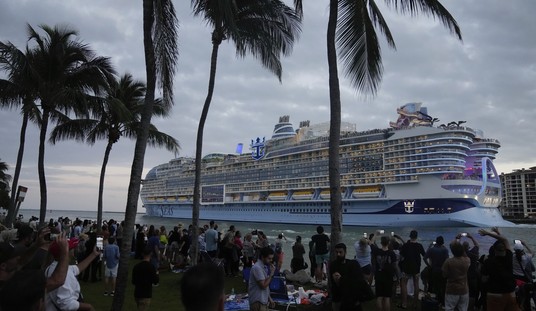The Democrats' lawfare strategy against Donald Trump may be thwarted this week, as the Supreme Court is poised to hear arguments on Trump's case on presidential immunity on Thursday, which could affect several of Trump's trials.
"The question before the justices is whether Trump can be tried on criminal charges that he conspired to overturn the results of the 2020 election," explains SCOTUSblog. "The court’s answer will determine not only whether Trump’s trial in Washington, D.C., before U.S. District Judge Tanya Chutkan, originally scheduled for March 4 but now on hold, can go forward, but also whether the former president’s trials in Florida and Georgia can proceed."
Not applicable in this case is the ongoing trial over Trump's non-disclosure agreement in New York City.
A grand jury indicted Trump last summer on four counts stemming from Special Counsel Jack Smith’s probe into the Capitol riot. Smith accused Trump of sowing "widespread mistrust" by spreading falsehoods about election fraud and engaging in three criminal conspiracies targeting the electoral process.
No one has even been prosecuted for sowing "widespread mistrust" in the 2016 election with bogus allegations of Russian collusion.
Trump attempted to assert presidential immunity, but Judge Chutkan rejected this plea in December. Following this denial, Smith petitioned the Supreme Court to address Trump's immunity claim promptly, bypassing the D.C. Circuit's review, but the Supreme Court declined this request. The D.C. Circuit later upheld Chutkan’s ruling, rejecting Trump’s immunity assertion. They set a deadline of February 12 for the decision to take effect, allowing the criminal case against Trump to proceed unless he sought Supreme Court intervention. Trump did, and the Supreme Court ultimately agreed to take up the matter, fast-tracking the case for its April session.
In his brief at the Supreme Court on the merits, Trump tells the justices that allowing the charges against him to go forward would pose “a mortal threat to the Presidency’s independence.” “The President cannot function,” Trump contends, “and the Presidency itself cannot retain its vital independence, if the President faces criminal prosecution for official acts once he leaves office,” because the threat of prosecution will hang over the president’s decision-making process. Trump cites a law review article by then-Judge Brett Kavanaugh, who before becoming a judge worked in the George W. Bush White House, arguing that “a President who is concerned about an ongoing criminal investigation is almost inevitably going to do a worse job as President.“ The same is true, Trump continues, “if that criminal investigation is waiting in the wings until he leaves office.”
Trump maintains that a president can never be prosecuted for his official acts. He points first to a “long history” of an absence of prosecutions, notwithstanding what he characterizes as “ample motive and opportunity” – everything from the appointment by John Quincy Adams of Henry Clay as secretary of state “after Clay delivered the 1824 election to him in the House” to President Joe Biden’s “mismanagement of the southern border.”
If the Supreme Court accepts Trump's argument, the left's entire effort to convict him hinges on Bragg's case in New York of an alleged misdemeanor outside of the statute of limitations that typically results in a fine.









Join the conversation as a VIP Member